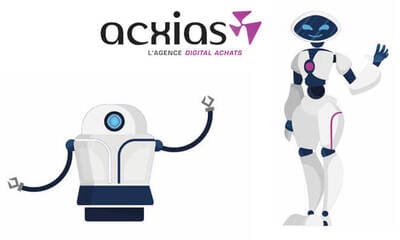To automatically convert part of its purchase requests into orders, the international high-tech group has opted for RPA (Robotic process automation) robots, implemented by Acxias.
 Since 2018, the purchasing management of Safran is interested in the opportunities offered by the Rpa to improve and speed up the processing of part of its processes, as long as they are stable and robust.
Since 2018, the purchasing management of Safran is interested in the opportunities offered by the Rpa to improve and speed up the processing of part of its processes, as long as they are stable and robust.
For this automation project, carried out by the purchasing digitalisation agency Acxias with the solution UiPath, a preparatory phase first identified the eligible processes. "Then we started to explore the volumes of purchase requests for needs issued with our Ariba P2R (Procure-to-receipt) application, on the Ariba Buying platform," explains Franck Jeanvoine, head of the group's purchasing methods, tools and performance department.
This automation track has been investigated and validated on a specific perimeter: the updating of purchase requests (PR, Purchase) of small amounts excluding catalog containing a quote in attachment, so that after validation they can be transformed into orders without further human intervention. Indeed, this process includes "a large part of administrative work, very repetitive and tedious, which can take up to 15 to 20 minutes per operation," says Idriss Mrani, DSO (Operational Support Department) manager of Safran Purchasing, the group's out-of-production purchasing department. The objective of robotics was therefore to do better with the same resources, and to relieve business teams of repulsive and time-consuming tasks to refocus them on the essentials (market analysis, exchanges with suppliers and user support).
This process, carried out within Ariba Buying by DSO operators, follows the following sequence: verification of the request data, verification of consistency with the quote information, addition of a standard comment, preparation for validation of the application. The command is then generated at the end of the chain. This process revolves around two robots. The first collects attachments in pdf format, extracts the information using an OCR (character recognition) system and returns it in a structured format (XML). The second robot reads the structured information and compares it to the demand data in SAP Ariba, before validating.

Conducted in agile mode, The project required some adjustments. "The Rpa showed some limitations, related to the rather technical context of Safran and the specifics of our tools," admits Idriss Mrani. "But its rise in power, coupled, in a possible second time, with the integration artificial intelligence technologies learning, should allow us to make progress." Building on the results obtained, Safran is now considering expanding the scope of the RPA.
In particular, the project could include all small purchase requests without a quote, which is responsible for approximately 35% of the total annual volume of non-catalogue orders. For its part, Acxias, which has just acquired d'A RPA Centre of Expertise, has initiated other projects based on this technology, for example to automate the administration of the platform SAP Ariba.
For more information:
"RPA robots free buyers from administrative tasks", 5th issue of The Acxias Watch.

